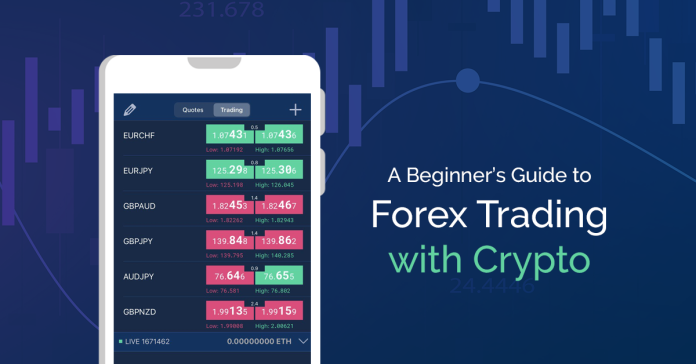Bitcoin (BTC) has become a controversial investment for those seeking profit from investment options and a potential hedge against global uncertainty and fiat currency weakness in recent times. Like currency exchange, Bitcoin is a digital floating exchange that is tied to the US dollar (forex). Unlike gold, however, there is no foundation physical object on which the price can be based.
Is Bitcoin a Form of Money?
Following the high-profile hack on Japanese exchange Mt. Gox and broad acceptance of bitcoin in online payments at major U.S. shops, the argument over whether bitcoin should be deemed legal currency has heated up. Unlike the US dollar, the Chinese yuan, or the euro, Bitcoin is not widely accepted as a currency by all market participants, including regulatory and government authorities.
Bitcoin trading has grown into a multibillion-dollar industry that allows anyone to purchase and sell the cryptocurrency on various exchanges. Several brokers claim that bitcoin trading is available for their forex trading services. However, investors need to know a few basic facts regarding how crypto and forex trading function. This article addresses the similarities and distinctions and argues why established bitcoin exchanges are a superior alternative to forex platforms introducing the option of exchanging the cryptocurrency.
Forex vs. Bitcoin Trading
There are several distinctions between FX and bitcoin trading. The prices of both physical and virtual currencies are determined by worldwide supply and demand parameters in both cases. When demand for bitcoins grows, so does the price. When consumption drops, so does the value.
On the other hand, Bitcoin is not affected by the supply uncertainty caused by the federal reserves. Bitcoins are mined at a consistent rate, but unanticipated adjustments in financial regulation, like the Swiss National Bank’s announcement to unbundle its currency from the euro in 2015, can create substantial swings in currency prices. The fundamentals of the crypto world determine the value of bitcoin. In contrast, FX problems are determined by a specific country’s economic choices and conditions and its currency.
Another problem is how people trade currency. Currency traders can increase their leverage using derivatives and other paper agreements designed to boost profits, in addition to one-to-one trading. Some brokers are slowly endorsing contracts that will increase leverage in the bitcoin industry in the present circumstances, but such contracts are still in their development. The ownership of stock on the NYSE is more akin to bitcoin trading.
The issue of liquidity is maybe the most significant distinction between Bitcoin and Forex. The global currency market is around $6 trillion, whereas the bitcoin market is worth billions. Bitcoin’s smaller market is more likely to have a more volatile trading environment, with substantial price fluctuations resulting from minor macroeconomic factors.
The foreign exchange market is uncontrolled. The CFTC, the NFA, and several other futures exchanges regulate options and futures based on currency trading. The CFTC, on the other hand, has yet to release a formal judgment on how it defines bitcoin other than as an asset. The Securities and Exchange Commission (SEC), the Financial Industry Regulatory Authority (FINRA), the Consumer Financial Protection Bureau (CFPB), and other government authorities, on the other hand, have issued multiple investor cautions about the risks of bitcoin investment.
Trading Bitcoin on Forex
According to several FX firms, individuals can deposit, transfer, and exchange on a bitcoin-based account. However, because contracts for difference (CFDs) are not permitted in the United States, the operation of these brokers may have legal consequences for Americans, and the Financial Conduct Authority (FCA), the United Kingdom’s financial regulator, has issued investor warnings about these types of platforms.
Other forex brokers have stated that they can integrate bitcoin trading into their platforms; however, given that they are not BTC-based and trade other currencies, it is unclear what they are doing beyond allowing consumers to buy and sell bitcoin on current bitcoin exchanges.
Investors would be better suited working with bitcoin-based exchanges that trade in their home currencies until forex platforms improve their bitcoin offers. These companies have a greater awareness of the trading market and security standards, and their trading costs are likely to be lower. Following the demise of Mt. Gox, several exchanges claim to have improved their models by adding more security features. Coinbase, a Bitcoin exchange established in San Francisco, has expanded to over 100 countries.
Coinbase continues to be one of the most popular ways to invest in bitcoin. Coinbase is a wallet that allows users to store, trade, buy, and accept bitcoin, according to its definition. Expedia Inc. (EXPE) and Overstock.com Inc. are among the merchants that use the popular platform to handle purchases of goods and services.
Users must first open a bitcoin account and then conduct a money transfer into the account each time they want to buy bitcoin. Because Coinbase does not store money in their accounts, every “exchange” of dollars for bitcoin necessitates additional security measures. Purchasing bitcoin could take three to five days, indicating that it does not function like a typical money exchange.
You can still buy at a set price, which means that each trade is locked in before bitcoins are sent to the individual account. Each transfer from dollars to bitcoin or vice versa incurs a fee, which is calculated at a rate of 4%.
Conclusion
The rising popularity of bitcoin as an investment alternative has piqued the interest of forex brokers eager to diversify their product portfolios. Some refer to bitcoin as a traditional currency, even though bitcoin trading is not based on a country’s macroeconomics but rather on the underlying system and broader reaction to global economic developments.
Although there are many similarities between trading bitcoin and trading forex, using a forex broker is unnecessary. It may be more expensive if they demand greater fees than typical bitcoin platforms like Coinbase. Investors should weigh the dangers of bitcoin and other alternative currencies before deciding whether this type of speculation is appropriate for their portfolios.












